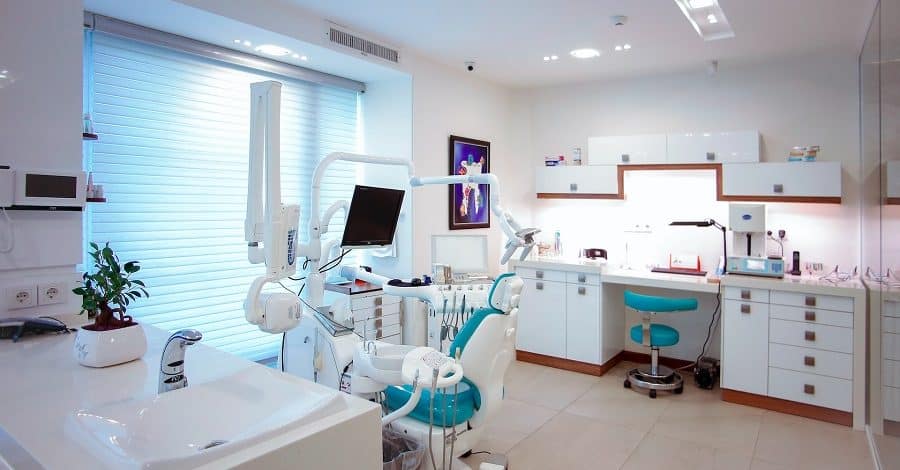When most people think of moving to Portugal, images such as charming cobblestone streets, green hillsides and warm sunshine usually come to mind first. However, there is a long list of vital aspects to consider before deciding if Portugal is the right country for you. This includes the quality of healthcare in Portugal.
When it comes to the health and wellbeing of you and your loved ones, you want to make sure the healthcare is easily accessible and affordable. So, just how does the healthcare in Portugal measure up?
The healthcare in Portugal: A quick overview
Portugal has a mixed healthcare system, including both public and private services. The public healthcare service is managed by Serviço Nacional de Saúde (SNS), the national healthcare system of Portugal. To have access to the state medical services, you must be registered with your local council or junta de freguesia. They will give you proof of address, upon your request, which you need for your registration with the local healthcare center.

What does the public health service in Portugal include?
- Visits to the doctor
You can schedule appointments with a doctor over the phone, in person, or online.
- Hospital
If you need to be treated at a hospital, the visit will be scheduled for you at your nearest hospital or at one with the right resources to treat your condition.
- Medical emergencies
If you need an ambulance for an emergency, you must call 112. For the ambulance service, you may need to make a small contribution that is not covered by the health service in Portugal.
- Maternity
Most maternity services are provided by your closest local hospital. The examinations are free, but pre-natal care classes must be paid for out of your pocket.
- Eye care
To see an optician under the state system, the local health center will book an appointment with a specialist. Keep in mind that for eyecare, waiting times can be long if the problem is not urgent. Glasses and contact lenses are paid for by yourself.
- Dental care
The SNS does not cover dental services unless you fall under a vulnerable group.
- Mental healthcare
To access mental care, you first need to see a doctor. They will prescribe medication or refer you to a specialist.
How to register for public healthcare in Portugal as an expat
Healthcare in Portugal for expats may seem like a challenge to understand, especially if there is a language barrier. But doing some research beforehand can make the process a very smooth one.
To register with the public Portugal healthcare system, you need to take certain documents to your nearest centro de saúde. These include:
- Proof of residency, such as your residency certificate
- Proof of address
- NIF
- Social security number (only necessary if you work)
- Your Portuguese mobile number
The staff at the centre will provide you with all the required forms to fill in. They will also take certain details from you. You will then receive a health card (cartao do utente), which you use for any health appointments. To find your nearest centro de saúde, you can do a simple search on Google Maps where they are all listed.

How much are the consultation fees?
All primary healthcare consultations offered through the Portuguese public service are free, meaning it is provided without any taxas moderadoras (moderating fees).
Portugal health care works under a cost-sharing regime between the State and the patient. This includes access to a family doctor, admission to specialized outpatient clinics and internment. Additionally, the State pays some of the costs of certain medicines.
The small contribution paid by patients includes basic emergencies in a public hospital and emergency surgeries.
Exemption from payment of user fees can be requested if anyone cannot afford it. There are also different groups of people that are exempt from payments, including:
- Seniors
- Minors
- Pregnant women
- Blood donors
- Firefighters
- People with renal problems
- Unemployed people
Private health insurance Portugal: How does it work?
Although public healthcare in Portugal is good, many people choose to take out additional private health insurance. In Portugal, private healthcare exists alongside the public SNS provision. The costs of private healthcare, specialists, and hospitals can be covered by taking out private medical insurance in Portugal.
Health insurance is quite affordable in Portugal and averages anywhere between €30 and €1000 per month. The price of private healthcare for expats depends on multiple factors, including age and pre-existing conditions.
Do you need expat health insurance to visit a private hospital or doctor?
No, both locals and expats don’t need insurance to visit a private healthcare facility. You can pay to visit, but keep in mind that seeing a private doctor can set you back anywhere from €50 to more than €100 per consultation.
How to choose medical insurance for expats
Purchasing healthcare for expats in Portugal can feel overwhelming, especially if it’s not something you have purchased before, and it can be challenging to know where to start.
Many expats start with their bank because the banks in Portugal typically offer discounted health insurance solutions. While this is an easy option, it’s a good idea to shop around. The largest providers in Portugal are AdvanceCare, Allianz, Multicare and Médis. Some things to consider are the overall coverage, premium amounts and frequency, and copayments.
Pharmacy costs
You can get some medicines over the counter at most local pharmacies. But, many types require a prescription. Under the state health system in Portugal, you’ll most likely contribute a percentage of your medicine’s cost, with different medicine grades subsidized in the following way:
- Class A (90%)
- Class B (69%)
- Class C (37%)
- Class D (15%)
Understanding Portugal’s healthcare services, one step at a time
The quality of healthcare in Portugal is high and it is steadily improving. The services are also very affordable, compared to many other countries in Europe. To optimally make use of all the services, it’s important to do proper research. Understanding how everything works will make it easier for you to navigate all parts of the system, step by step.

